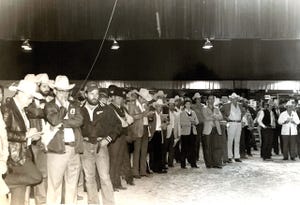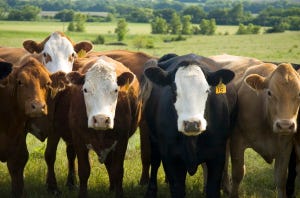Public Comment Period Ends For GIPSA Rule
Even poultry growers are against the controversial rule proposed by the Grain Inspection, Packers and Stockyard Administration (GIPSA).
November 22, 2010

Even poultry growers are against the controversial rule proposed by the Grain Inspection, Packers and Stockyard Administration (GIPSA).
“The proposed rule is ill-advised, exceeds GIPSA’s statutory authority, and, for some provisions, is unconstitutionally vague,” says a 45-page letter signed by George Watts, president of the National Chicken Council (NCC), and John Starkey, president of the U.S. Poultry & Egg Association (USPEA). “GIPSA fails to provide an adequate justification for imposing such sweeping and detrimental changes to the poultry industry and does not explain corresponding benefits to counterbalance the hundreds of millions of dollars of detrimental effects this proposal will have on the U.S. economy.”
USPEA and NCC sent comments to USDA yesterday, urging the rule be withdrawn. Public comment for the rule ended yesterday.
According to the poultry industry comments, “…the proposed rule is unconstitutional because it has so many vague and undefined terms that people and companies who have to comply with the rule won’t know what is illegal and what isn’t. The courts have repeatedly held that regulated entities must have ‘fair notice’ of what is prohibited so they may comply, especially with regard to what is called ‘likelihood of competitive injury.’ ”
The poultry-industry comments also objected to the changes proposed by GIPSA in the so-called “tournament” system of compensation for poultry growers, in which more efficient farmers are paid premiums based on their performance. The poultry folks say the GIPSA proposal would establish a “base rate” that, in effect, would likely reduce the premiums given to higher-performing growers.
“The result would be increased production costs for poultry dealers coupled with a decreasing incentive for growers to deliver high-quality chickens because compensation wouldn’t be tied to performance or quality,” according to the comments.
The National Cattlemen’s Beef Association (NCBA) filed comments regarding the rule with GIPSPA last week.
“Our comments are not a product of emotion. This is a time-consuming, comprehensive and extremely thorough document outlining our concerns about the impact this rule would have on the U.S. beef industry,” says Colin Woodall, NCBA vice president of government affairs. “There is immense passion on both sides of this rule. However, we set passion aside and used substantiated evidence as the foundation of our opposition of this rule that we believe could lead to detrimental consequences to the U.S. beef cattle industry. From producers to consumers, there are no clear winners if this rule is implemented, unless you happen to be trial lawyer.”
NCBA contends that the proposed rule adopts a view of the Packers and Stockyards Act (PSA) that has been uniformly rejected by the federal appellate courts. Woodall says the rule was offered by GIPSA with no meaningful economic analysis and without concern for its impact on producers, packers, retailers or consumers.
NCBA, along with the National Meat Association, the National Pork Producers Council and the National Turkey Federation, commissioned Informa Economics Inc., to conduct a comprehensive economic analysis of the proposed rule in the absence of any substantial analysis by USDA. The study found that the rule would result in ongoing direct and indirect costs to the livestock and poultry industries – eventually borne by producers and consumers – of more than $1.64 billion, including nearly $880 million to the beef industry.
Folks in the poultry industry commissioned their own analysis, too, and concluded the GIPSA rule would cost about $1.03 billion in identifiable cost increases over the first five years of rule enforcement.
“Considered in its entirety, the proposed rule seems aimed more at punishing business efficiency and innovation rather than redressing any identifiable economic distortions that might not ordinarily be corrected by market forces,” according to the poultry comments. “Congress has not authorized the agency to engage in central planning or empowered it to redistribute income based on its own conception of ‘fairness’ at the expense of rational, legitimate, and efficient business practices that benefit both industry participants and the consumers that they serve.”
About the Author(s)
You May Also Like


.png?width=300&auto=webp&quality=80&disable=upscale)


